Successful sales contests include three critical elements: goal setting, emotional commitment, and focus. These elements will serve as the foundation for both short-term and long-term programs that will ultimately help you engage your sales reps to achieve your business objectives.
Explore our guide to learn best practices to follow when designing your next incentive program.
What we believe about incentives:
- Sales incentive solutions must be grounded in behavioural economics
- Leaders are key to a successful sales contest or incentive program
- Sales contests should be funded from incremental gain
- Global sales incentive programs must be local
- Local client service matters (BI WORLDWIDE Canada)
- Sales engagement and Return on Investment (ROI) should be measured
- Experience makes a difference
Why sales incentives? What do they do?
Compensation plans create a bell curve of performance among sales reps… incentives move the middle.
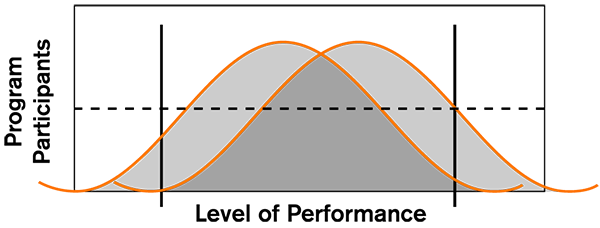
Five sales contest mistakes to avoid.
Where does a sales incentive program fit in?
Incentives should be treated as a separate component of your overall strategy for how to motivate your sales team.
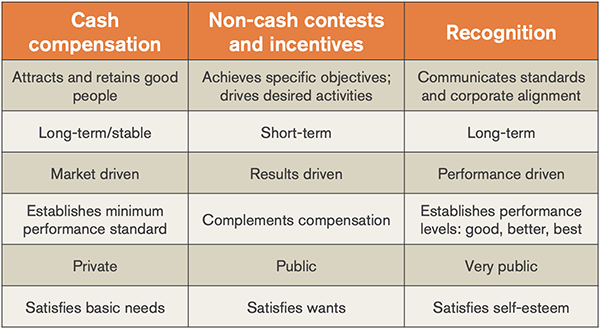
Why should I run a sales contest?
Sales contests provide sales reps at all levels the opportunity to stretch and increase their performance throughout the year, as well as:
- Narrow the gap between current performance and quota
- Sustain high performance
- “Move the middle” in the performance bell curve
- Drive activities, short-term impact, and on-demand behaviour change
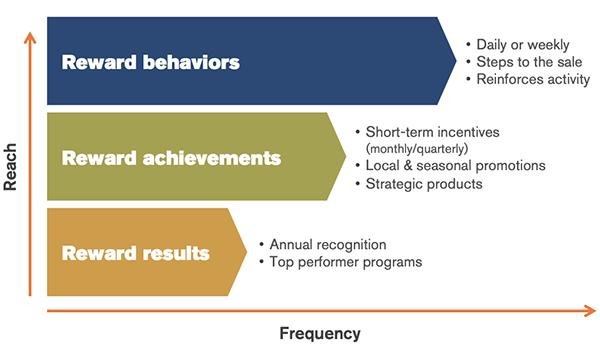
How much should I spend on sales contests?
- 1-5% of total sales revenue
- 5-10% of incremental sales revenue
- 12-24% of incremental profit
- 2-5% of the average participant’s income (multiplied by the fraction of the year that the program period represents)
- 15-25% of cost savings in a cost-reduction program
The percentages allocated for each component will vary based on the types of programs being designed. Recent research shows that instead of trying to drive down administrative costs for sales contests, a balanced approach works best. Strong communications are key, as are visual trackers and progress reports.
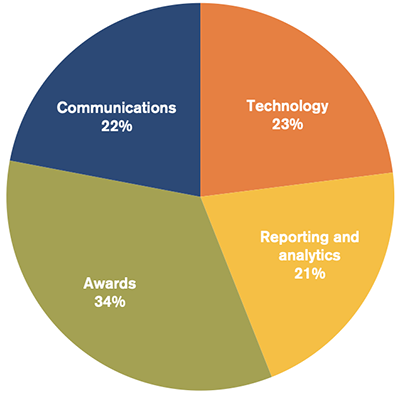
Why should I use non-cash rewards?
Most sales reps will say they want more cash or cash equivalents like gift cards, but study after study has proven that reps will actually work harder and perform at a higher level for non-cash rewards like merchandise or memorable experiences.
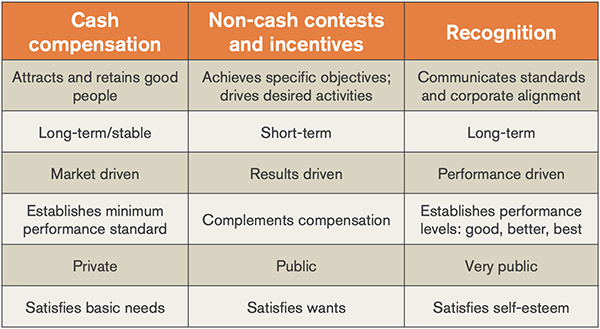
Source: Making the Performance Connection, BI WORLDWIDE, 2010
What makes a reward effective?
Justifiability: It’s difficult to indulge with our own money but we’ll gladly accept something high-end as a reward for achieving a goal.
Sociability: When we earn a non-cash reward like a watch or a trip, we’re more likely to talk about it with others than if we were to receive a cash bonus.
Experiential: Motivation is extended and reinforced when the reward is above and beyond fulfilling a basic need.
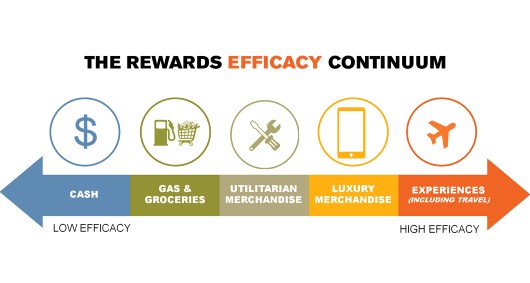
How do I get started?
- Define program objectives
- Define and segment target audience(s)
- Determine performance drivers
- Gather data and key metrics
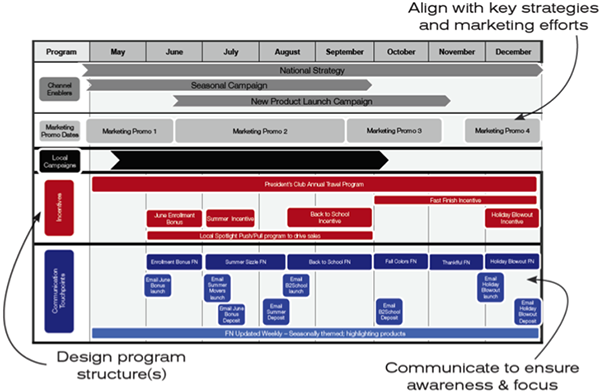
Who We Are
At BI WORLDWIDE Canada (BIW), we inspire people and deliver measurable business results. We employ communication, training, measurement, and rewards as the foundation to inspire behaviour change and achieve results for our clients.
Each organization is different, so we first work out what your overall business goals are. Once known, we help define the employees’ performance objectives and design and deliver innovative incentives — grounded in the science of behavioural economics — to align with your business strategy.
